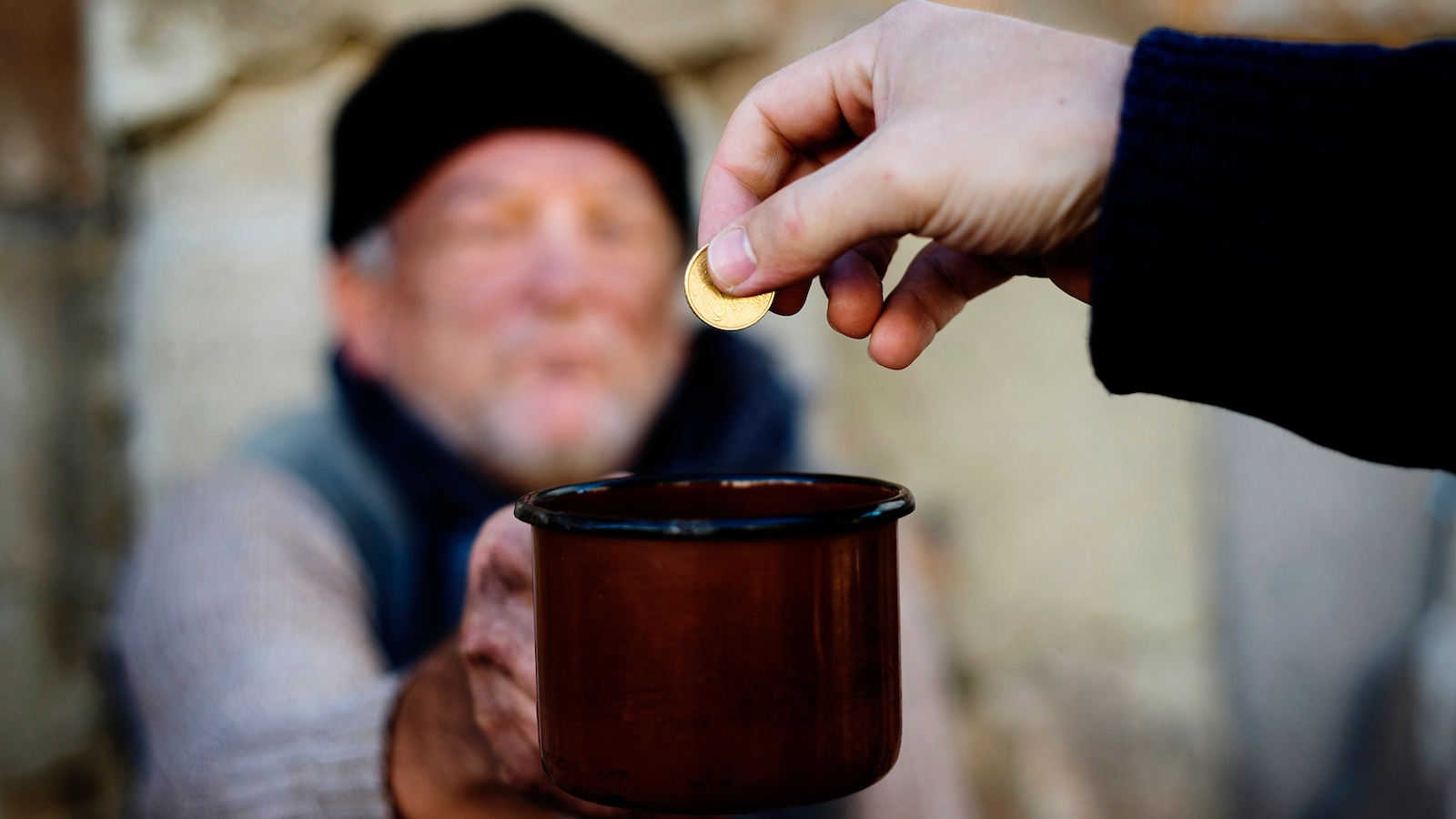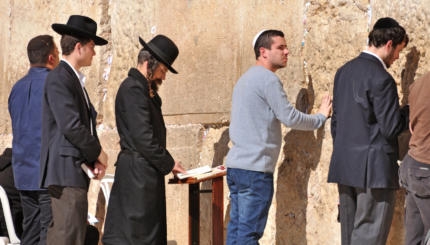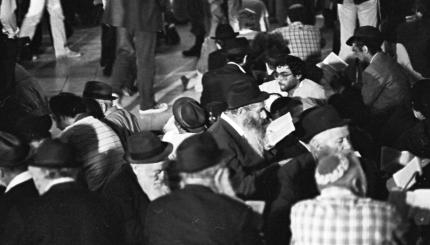To Jews today, the term connotes giving charitable contributions, but the term originates in another realm. In the Bible, tzedakah means “righteous behavior” and is often paired with “justice.” In Jewish thought and tradition, material support for those in need is not a matter of “charity”–a term that implies generosity beyond what may be expected–but a requirement. As in most areas of life, here too Jewish tradition makes practical demands and specifies expectations.
Tzedakah Themes and Theology
Biblical prophets castigated the Israelites for neglecting and even exploiting the poor, insisting that God has particular concern for those in need. The rabbis of classical Judaism praised tzedakah, calling it, for example, “equal in value to all the other mitzvot [commandments] combined.” They also praised those who practice it, saying that they attain the level of holiness of someone who brought sacrifices in the ancient Temple. The Rosh Hashanah liturgy lists tzedakah alongside repentance and prayer as a human act capable of averting a negative divine decree.
History and Development of Tzedakah
Although the term tzedakah is applied to giving to individuals in need only in post-biblical Judaism, the Bible is replete with admonitions to show concern for the poor. Biblical laws like those calling on farmers to leave aside some of their crops during harvest for the landless become in rabbinic Judaism the basis for an extensive social welfare system built on individual initiative and shared responsibility. Communities of sufficient size created voluntary societies to care for the ill, provide for newlywed couples, house travelers, bury the dead, and offer interest-free loans to the needy. This tradition of grassroots organizing to assist those in need is even now a distinguishing feature of Jewish communities.
Tzedakah Requirements
Traditional Jewish law regulates the collection and disbursement of tzedakah in an attempt to assure fairness in both functions. Few mathematical formulas are offered, but Judaism provides guidance on how much to give, how to minimize embarrassment to the recipient, and how to set priorities among competing demands for assistance. The so-called “ladder of tzedakah” expounded by the medieval thinker Maimonides, one of the best-known Jewish sources on this subject, emphasizes the importance of anonymous, generous giving, and on helping those in need become self-sufficient.

Help us keep Jewish knowledge accessible to millions of people around the world.
Your donation to My Jewish Learning fuels endless journeys of Jewish discovery. With your help, My Jewish Learning can continue to provide nonstop opportunities for learning, connection and growth.
Contemporary Issues in Tzedakah
The social and economic realities of modernity have raised new questions and challenges for Jews who want to act upon the traditional Jewish obligation to assist the poor. To what extent does the modern welfare state obviate the necessity for individual initiative in tzedakah? What balance should be struck by contemporary Jews who want to partake fully in the life of the wider community, between assisting needy Jews and addressing Jewish needs, and providing for all those in need? To what extent must Jews today return to the biblical origins of tzedakah in a wider concern for fairness and justice, shaping a Jewish imperative to address the root causes of poverty and social injustice?



